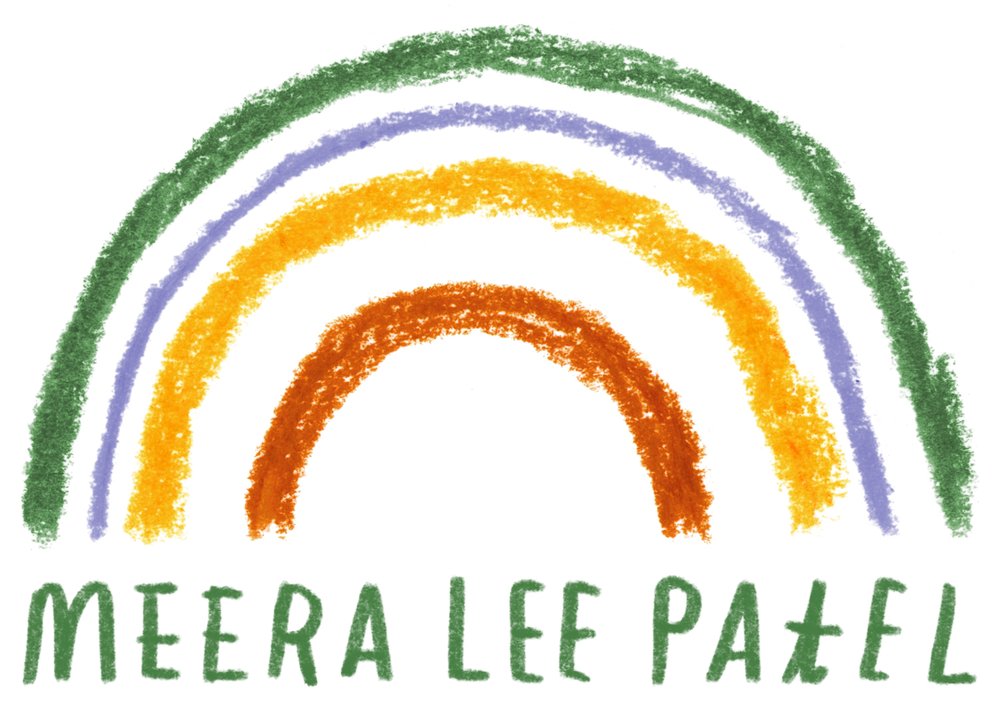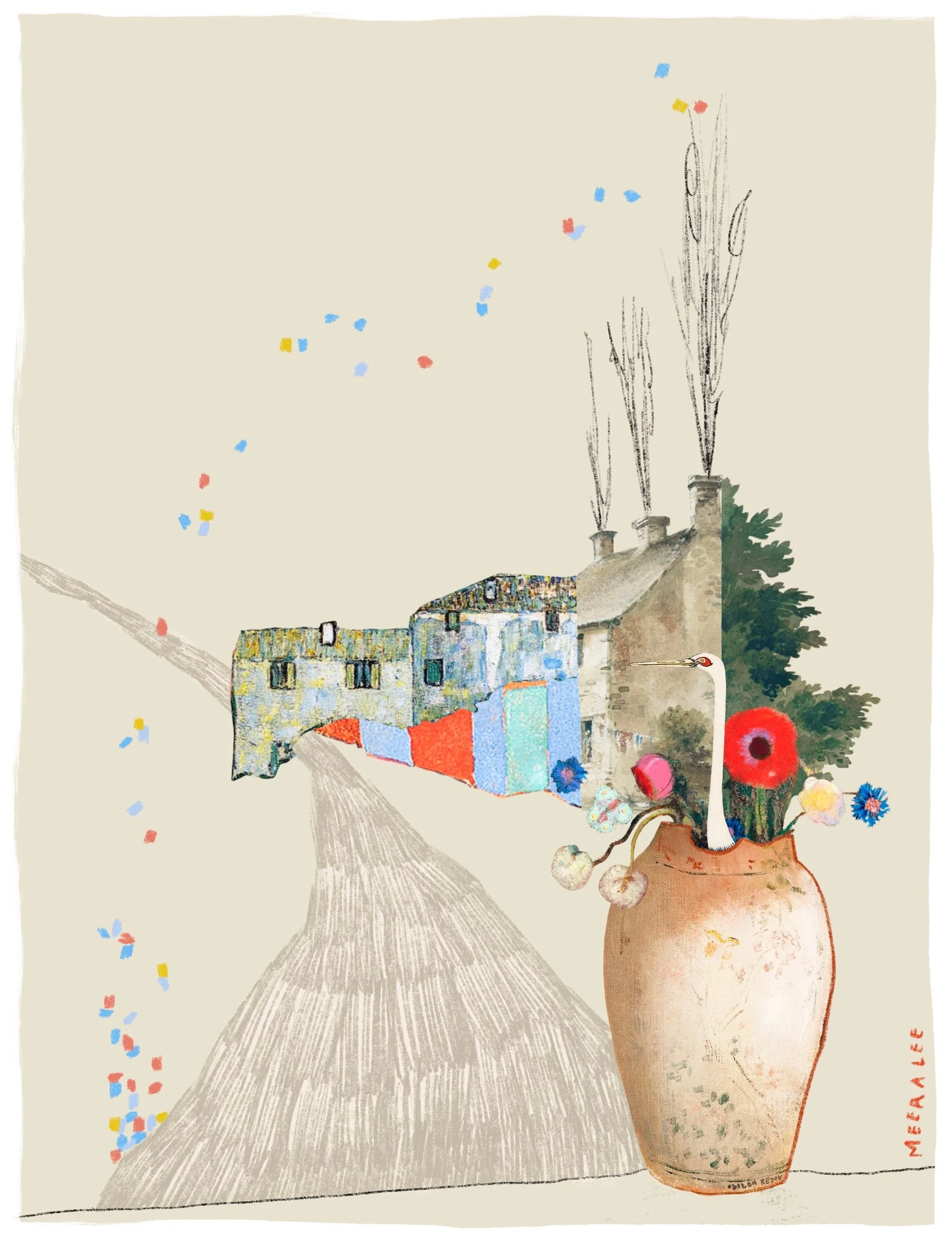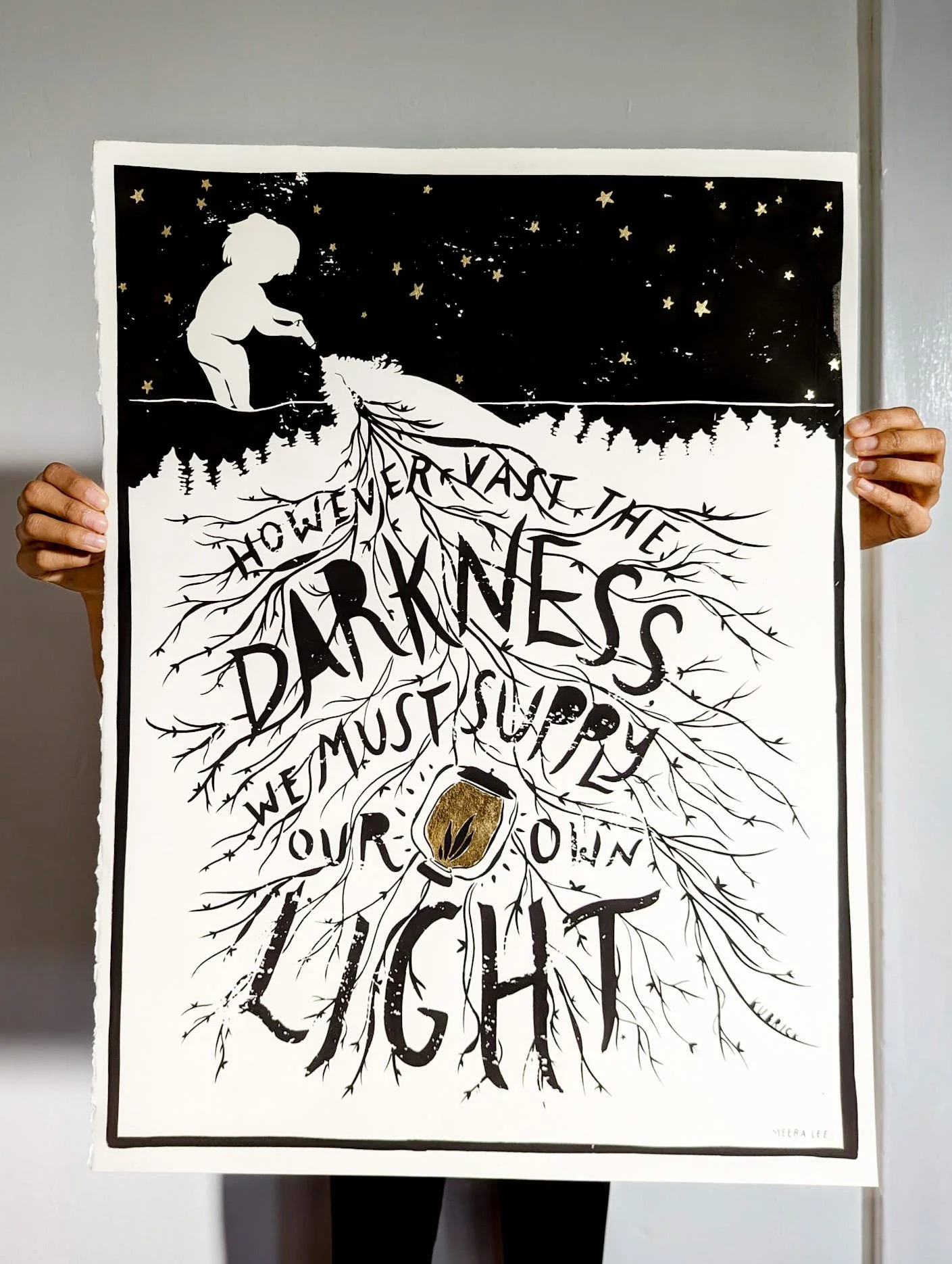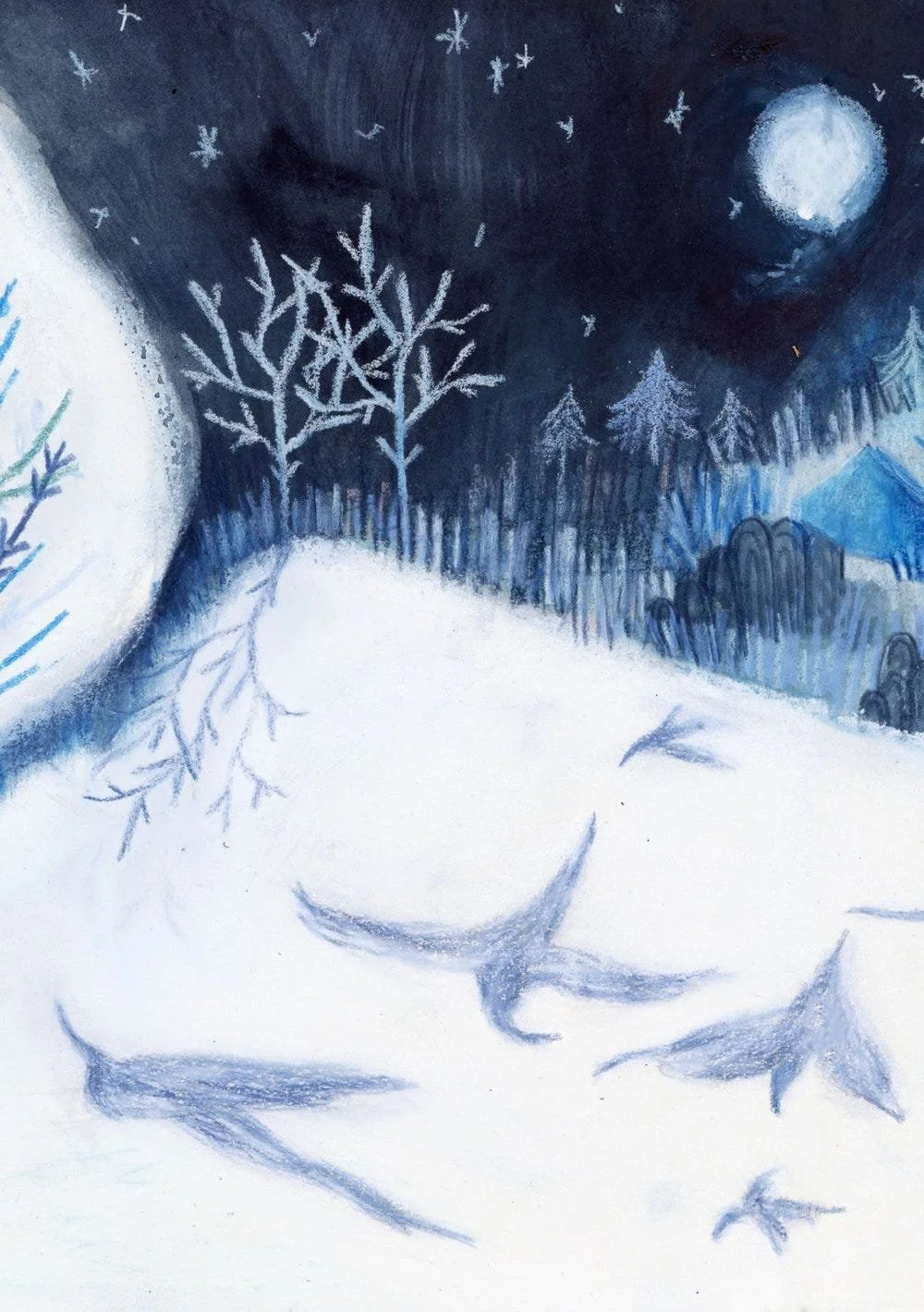A paint palette from How it Feels to Find Yourself
A year from now, here are five things from this week that I'd like to remember:
MONDAY
I wake up tired. It’s 4:35 am and our 5-month-old is crying. I sit up, swing my legs over to the edge of the bed, and stumble towards the door. Jack has been up for some time now, waiting for us to wake. He dances around my feet, tip-tapping excitedly, wanting me to sit down and play with him. “I need a minute, Jackie,” I mumble, stepping over him and into the bathroom. He watches as I brush my teeth and splash cold water on my face. I feel irritated for no reason. After a few minutes, I close the door.
By 6:00 am, the baby has been changed and fed and cried a few more times. We’re sitting on the floor playing peek-a-boo, waiting for the sun to show her face. Jack sits by the bedroom door, waiting. Every so often, he looks over to see how we’re doing.
Around 6:45, I get dressed. Jack bounces around my heels as I pull on pants and a hoodie. “Jack. Jackie. I need some space,” I say, more gently than I have before. When we reach the back door, he’s there, waiting. I let him out and he races around the yard, joyfully feeling the cool air on his face. The trees are dropping their leaves now, and the crinkle of each one fills my ears. The scent of morning dew after a long fall from the sky passes over us in waves. I breathe in deeply and will myself into feeling new. I want to be better—patient, kind, more appreciative of all the good I have. Jack walks over and sits down next to me, so closely that his body is on my feet. His head rests under my hands. He waits.
—from ”A Lesson in Unconditional Love” in How it Feels to Find Yourself
TUESDAY
This interview with Blexbolex about The Magicians; this letter by Ruth Franklin of Ghost Stories about the purpose of art in dark times; this conversation on moving past your own self-doubt between Lizzy Stewart and Andy J. Pizza.
WEDNESDAY
Teared up reading today’s note from Courtney Martin, a letter about her daughter turning 10. I myself can hardly fathom a world in which my daughters are 10, or 11, or anything except so small. In it, she writes:
When we were driving home so slowly that day, I never could have predicted any of this—that, ironically, my firstborn would gift me with nourishing, companionable quiet, and return me to my love of solitude and art, and speak an emotional language so foreign to me it would humble me in all the right ways.
I think about this constantly—how N and F are their own mysterious beings, equipped with their own arsenal of language, philosophy, and thought. How they are not extensions of me. How I am humbled continually by how easily they find and hold onto anything good. How they do not dwell. How deeply they feel about their perceived injustices. How it’s not my job to tell them what they should think or feel, but help them find the words to articulate what they do think and feel. How it’s my job to guide them, yes, but how mostly it’s my job to stay out of their way—so they can show me, and the rest of the world, who they are.
THURSDAY
In the very little time I have to make things, I have been trying, very hard, to make things. Sometimes this is during F’s nap. Often it is while we go on walks. I walk and write poems in my head, on my Notes app. I text lines of poems or this newsletter to myself. I try to capture what I feel in words, hoping that eventually, I’ll be able to translate it into a picture. I draw on the couch after the girls are in bed. I draw when I should be sleeping. Sometimes I draw instead of showering.
I fret a lot—not about the time I’m losing, but about whether I’ll still want to make the things I want to make when I do have the time. Whether I’ll still feel the spark. Whether the making part of me will keep waiting for the rest of me to catch up.
Two pieces I made this year that I finally framed, ready to hang in our home.
I took the time to frame these two illustrations this week. We’re going to hang them up in our house. Each one took too long to make by any reasonable person’s standards. If I divide the amount of time it took to draw each one by the rate I was paid, it comes out to exactly nothing. If I add up the additional costs—time with my family, regular hygiene, a semblance of a social life, an earlier bedtime—things start to sound a little ridiculous. I start to feel ridiculous. I have written about this period of motherhood before.
But when I look at these two illustrations together, I see that the making part of myself is alive and well. That it is being tended to. That despite being obviously neglected, my creativity is climbing back into my life. Into where it belongs. That it is creating its own space in the places I have abandoned. That it refuses to be forgotten. That I have not left this very integral—perhaps the most integral part of myself, behind. That what’s good is slow in its making, but that the making part is very good, too. That, however slowly, my art is growing and changing, and I am, too—and that both are well worth the costs.
FRIDAY
Before you know what kindness really is
you must lose things,
feel the future dissolve in a moment
like salt in a weakened broth.
What you held in your hand,
what you counted and carefully saved,
all this must go so you know
how desolate the landscape can be
between the regions of kindness.
How you ride and ride
thinking the bus will never stop,
the passengers eating maize and chicken
will stare out the window forever.
Before you learn the tender gravity of kindness
you must travel where the Indian in a white poncho
lies dead by the side of the road.
You must see how this could be you,
how he too was someone
who journeyed through the night with plans
and the simple breath that kept him alive.
Before you know kindness as the deepest thing inside,
you must know sorrow as the other deepest thing.
You must wake up with sorrow.
You must speak to it till your voice
catches the thread of all sorrows
and you see the size of the cloth.
Then it is only kindness that makes sense anymore,
only kindness that ties your shoes
and sends you out into the day to gaze at bread,
only kindness that raises its head
from the crowd of the world to say
It is I you have been looking for,
and then goes with you everywhere
like a shadow or a friend.
—Kindness by Naomi Shihab Nye
xx,
M
To sign up for my weekly newsletter, Dear Somebody, please subscribe here.



















































